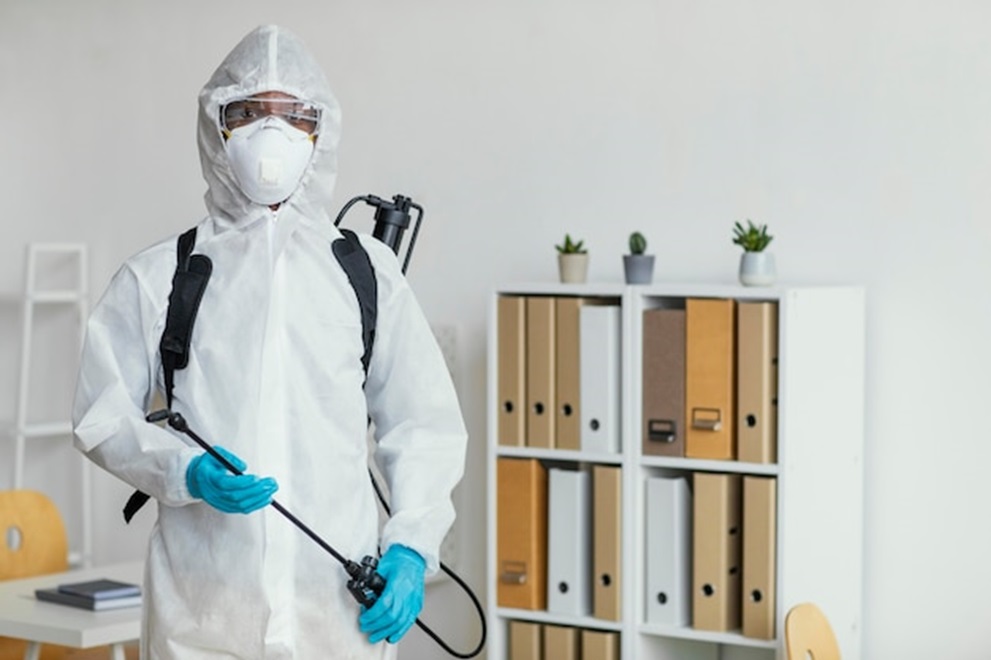
Commercial cleaning and disinfection are often thought of as the same thing, but there is a big difference between the two services. It is important to understand the difference to ensure that you get the services you need for your business. This article will discuss the differences between commercial cleaning and disinfection and help you decide which service is best for your business!
What is Commercial Disinfection?
Commercial disinfection is the process of using a disinfectant to kill or inhibit the growth of microorganisms on inanimate objects. They come in many different forms, including liquids, gels, aerosols, and wipes. Plus, they can be applied using various methods, such as spraying, fogging, or wiping.
Disinfectants are typically used to clean and disinfect surfaces that are likely to contact people, such as countertops, door handles, and doorknobs. They can also disinfect equipment and other objects in the workplace. They can be harmful if not used properly, so it is important to consult with a professional for disinfectant fogging service in Atlanta to help you with the process.
What is Commercial Cleaning?
Commercial cleaning is the process of removing dirt, dust, and other debris from surfaces in a commercial setting. It can also be performed manually by a broom and dustpan or with specialist equipment like vacuums and mops. This can help prevent the spread of infection, but it should not be used as a substitute for disinfection.
Key Difference Between Commercial Cleaning and Commercial Disinfection
The key difference between commercial cleaning and disinfection is that commercial cleaning does not kill microorganisms, while disinfectants can kill a specific range of them. Disinfectants are also typically used to clean surfaces that come into contact with people, whereas commercial cleaners are designed to remove dirt, dust, and other debris from surfaces. It is important to note that commercial cleaning should not be used as a substitute for disinfection.
If you are unsure which service is best for your business, it is always best to consult with a professional. They will help you decide which services are necessary and how they can be implemented safely in your workplace. Also, read about the difference between disinfectants & antiseptics.
Which one is right for you?
Now that you know the difference between commercial cleaning and disinfection, you may be wondering which one is right for your business. Here are a few things to consider:
1. What surfaces will be cleaned and disinfected?
Some businesses only need their countertops to be cleaned and disinfected, while others may need more extensive cleaning, including floors, walls, and ceilings. If you only need countertops to be cleaned and disinfected, commercial cleaning may be sufficient. However, commercial disinfection may be necessary if you need more extensive cleaning.
2. Are there any special considerations?
Some businesses may have special considerations that need to be considered when choosing a commercial cleaning or disinfection service. For example, businesses with sensitive equipment or delicate surfaces may need to use a different disinfectant than those without these considerations.
3. What is your budget?
Commercial cleaning and disinfection services can vary in price, so it is important to find one that fits within your budget. In most cases, the average cost for a commercial cleaning service is $75 per hour, while the average cost for a commercial disinfection service is $100 per hour.
So it’s up to you to decide what service you want to use for your business and what budget you have to work with. If you are still unsure, consult with a professional to get their expert opinion.
To Conclude
There you have it! A breakdown of the difference between commercial cleaning and disinfection. You may even consult with a professional to know more and get the best service for your business.
